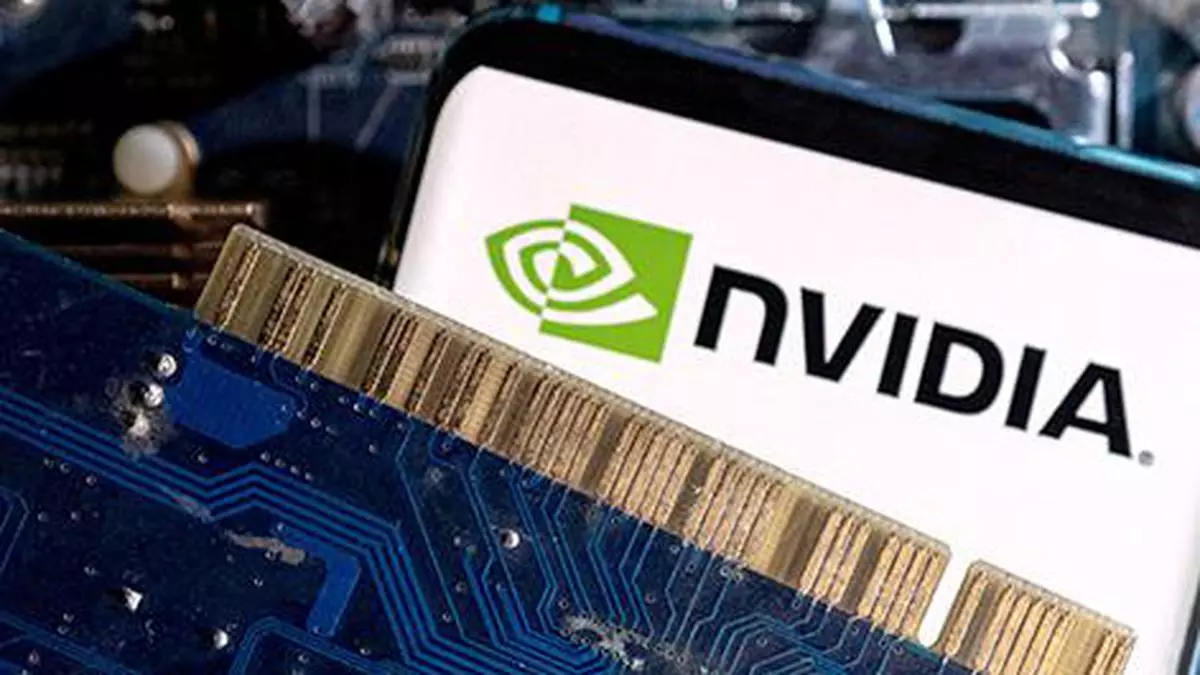Nvidia stock surges as revenue forecast tops estimates, AI demand continues
Nvidia on Wednesday forecast a roughly threefold surge in quarterly revenue that handily beat estimates as the company banked on towering demand for its industry-leading artificial-intelligence chips, sending its shares up 10 per cent after-hours.
The already-hefty demand for the company’s data center chips and graphics processing units (GPUs) continues to grow as firms scramble to expand their AI offerings. Nvidia’s silicon dominates the global market for AI chips, where it counts the likes of Microsoft among its customers.
“The market was poised to sell the news following Nvidia’s earnings, given the sky-high expectations and deteriorating macro conditions,” Investing.com analyst Thomas Monteiro said. “However, once again, the company left no doubt that the AI boom is much more than just a stock market narrative, but rather, the most significant bet from corporations worldwide at this moment.”
Also read| Broker’s call: LIC (Buy)
The late-day stock jump lifted the market capitalization of the Santa Clara, California, company by more than $129 billion, and pushed up the shares of other AI-related companies including chip designer Arm Holdings. Nvidia and other hardware suppliers linked to AI computing added $160 billion of combined stock market value.
Nvidia on Wednesday forecast first-quarter revenue growth of 233 per cent, ahead of Wall Street expectations of 208 per cent growth.
For the first three quarters of 2023, Nvidia reported quarterly revenue that beat analyst estimates by between 10 per cent and 20 per cent.
Some analysts raised questions about how long Nvidia will be able to sustain this pace of growth.
The company forecast revenue for the current quarter of $24.0 billion, plus or minus 2 per cent. Analysts on average were expecting revenue of $22.17 billion, according to LSEG data.
Sales at the data center segment – its largest by revenue share, grew 409 per cent to $18.4 billion in the fiscal fourth quarter, coming in above estimates of $16.8 billion, according to LSEG data. Data center revenue grew close to 280 per cent in the previous quarter.
The AI frontrunner’s supply chains, which have been unable to match the soaring demand for Nvidia’s chips, are also improving. But CEO Jensen Huang told analysts on a post-earnings conference call that there was no way the company can “reasonably” keep up on demand in the short term as it ramps up production.
“(The) biggest question on minds for growth is how supply-constrained they remain and what demand looks like over time,” said Ben Bajarin, chief executive of consulting firm Creative Strategies.
Analysts expect major supplier Taiwan Semiconductor Manufacturing Co’s (TSMC) advanced packaging capacity to improve in the first half of the year. This will allow Nvidia to work through the central bottleneck to deliver more chips to customers.
Nvidia reported fourth-quarter revenue of $22.10 billion, beating estimates of $20.62 billion. Adjusted for certain items, fourth-quarter earnings were $5.16 a share, compared with estimates of $4.64 a share, according to LSEG data.
Nvidia expects its first-quarter adjusted gross margin to be 77 per cent, plus or minus 50 basis points. Analysts on average forecast gross margin of 75.6 per cent.
Also read| Stock to sell today: UPL
Nvidia stock has gained more than 30 per cent so far this year as it jockeys with Amazon.com and Alphabet for a spot among the most valuable companies.
As of February 20, about $30 billion worth of Nvidia shares changed hands daily on average over the past 30 sessions, pulling ahead of electric vehicle maker Tesla, which averaged $22 billion per day over the same period.
The AI poster child’s revenue has continued to grow despite tightened restrictions on trade with one of its largest markets: China.
Nvidia said in a filing on Wednesday it had received requests from antitrust regulators in France, the European Union, United Kingdom and China over its sale of GPUs and efforts to allocate supply. The company said it expects to receive additional requests from antitrust regulators in the future.
In December, US Commerce secretary Gina Raimondo told Reuters that the Biden administration is in discussions with Nvidia about permissible sales of artificial intelligence-chips to China. She said she had spoken with Nvidia’s CEO, Huang, and that he was clear that Nvidia will work within the rules the Commerce Department establishes.
